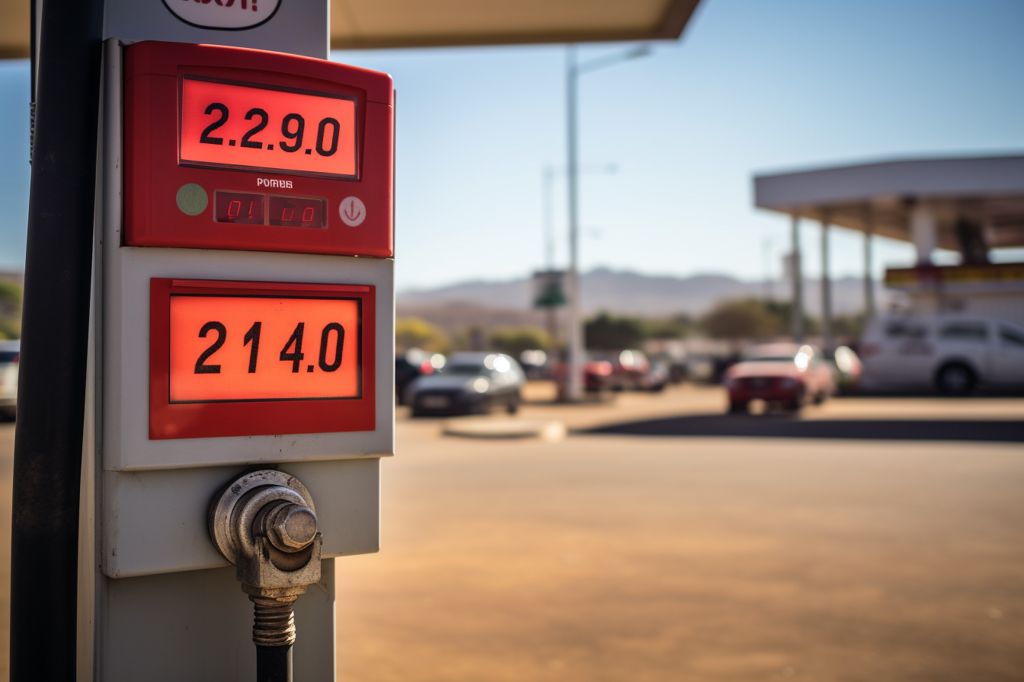The Minister of Mineral Resources and Energy, Mr. Gwede Mantashe, has announced fuel price adjustments that will take effect on July 5, 2023, in South Africa. The adjustments consider both local and international factors, alongside the nation’s fuel prices, which are determined monthly.
South Africa’s Reliance on Imported Fuel
South Africa relies on crude oil and finished products imported at international prices, including additional costs such as shipping expenses. This makes the nation particularly vulnerable to international influences on fuel pricing.
Factors Contributing to Fuel Price Adjustments
The fuel price adjustments for July 5, 2023, are based on the following factors:
- Crude Oil Prices
During the review period, the Brent Crude oil price experienced a slight decrease from $75.90 to $75.10 per barrel. This decrease was attributed to recession fears and anticipated global economic slowdowns. Additionally, The US Federal Reserve maintained its interest rates but warned of future increases, and the European Central Bank and The Bank of England raised their interest rates due to ongoing recession concerns. The meeting of OPEC and Non-OPEC members also decided not to increase oil production cuts, affecting crude oil prices.
- International Petroleum Product Prices
The average international product prices of petrol, diesel, and illuminating paraffin increased, while the price of LPG decreased. The factors for these adjustments include the ongoing driving season in the Northern Hemisphere, which raised petrol prices, tighter supplies that led to middle distillate prices increasing at a higher rate, and LPG prices decreasing due to declines in propane and butane prices.
- Rand/US Dollar Exchange Rate
The South African Rand appreciated against the US Dollar on average during the review period, resulting in lower contributions to the Basic Fuel Prices (BFP) of petrol, diesel, and illuminating paraffin. The stronger Rand positively affected petrol and illuminating paraffin prices.
- Implementation of the Slate Levy
The cumulative slate balance for petrol and diesel amounted to a positive balance of R2.7 million by the end of May 2023. As a result, the Self-Adjusting Slate Levy Mechanism does not require a Slate Levy for the price structures of petrol and diesel in July 2023.
- Octane Differentials Between Petrol Grades
The 95 octane (unleaded) grade is the price-marker grade, and the BFP-differential between 95 and 93 octanes is adjusted quarterly on the first Wednesday. The BFP Octane differential changed during the previous quarter, affecting the retail prices of 95 and 93 petrol octanes in each fuel-pricing zone starting July 5, 2023.
Fuel Price Adjustments for July 5, 2023
Based on these local and international factors, the following fuel price adjustments will take effect on July 5, 2023:
- Petrol (93 ULP and LRP): 24.00 c/l decrease
- Petrol (95 ULP and LRP): 17.00 c/l decrease
- Diesel (0.05% sulphur): 18.00 c/l increase
- Diesel (0.005% sulphur): 12.00 c/l increase
- Illuminating Paraffin (wholesale): 4.00 c/l decrease
- SMNRP for IP: 5.00 c/l decrease
- Maximum LPGas Retail Price: 296.00 c/kg decrease
The fuel prices schedule for the different zones will be published on Tuesday, July 4, 2023.








